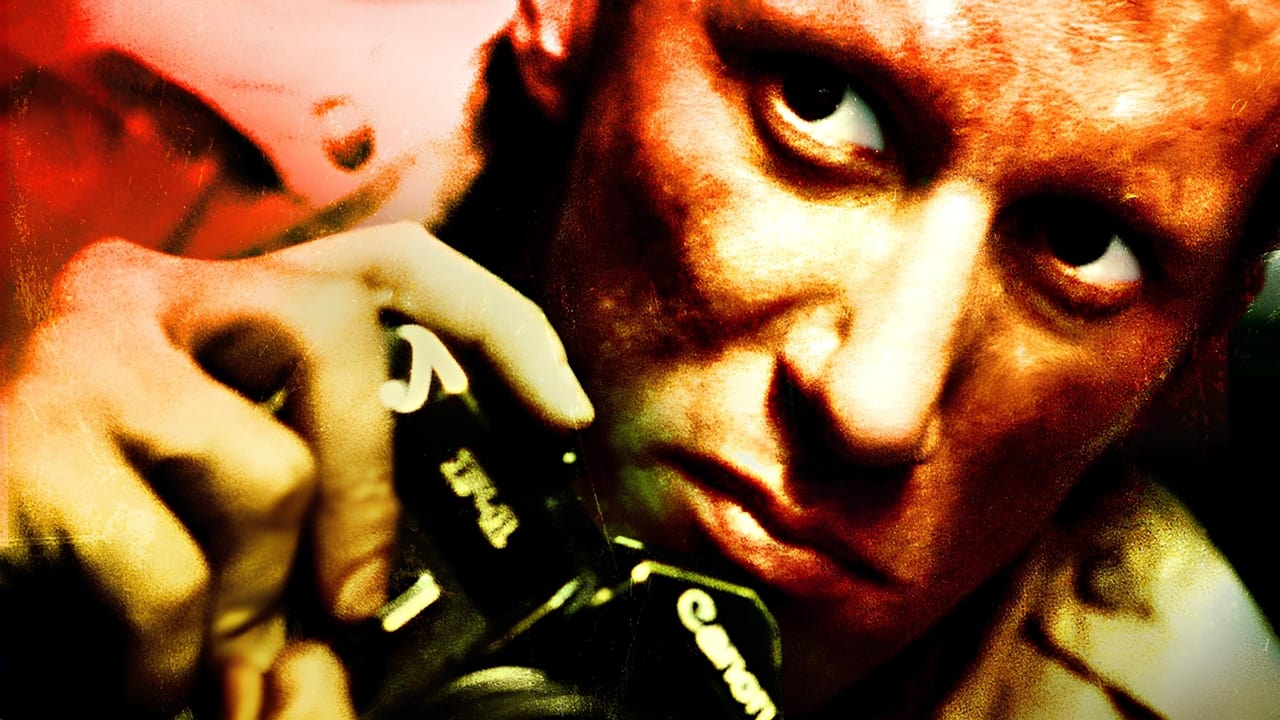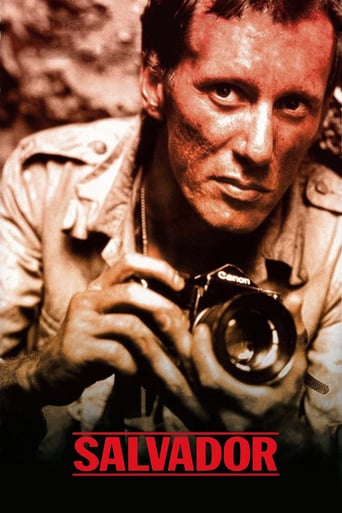

An American photojournalist (James Woods) gets caught in a political struggle at El Salvador in 1980.Oliver Stone is an interesting director. He has managed to make a name for himself, but most people could probably not name his movies, or maybe name a small handful. Other than "JFK", people may not have even seen many. He is actually better known for his left-wing politics.In "Salvador", he definitely has the politics, expressing the view that one can be left-wing and still be anti-Communist and love America. This was a very timely film, and a subtle criticism of Ronald Reagan (though a couple years too late to really have any impact).
... View MoreAs a Salvadorian, it is an offense to watch this movie. I am a big fan of Oliver Stone, but sometimes it is evident that Stone gets carried away with emotion and his political views create too much bias; especially in this film. Stone fails to capture the essence of the conflict and most important to capture the reality of the situation. He portrays and depicts the right wing as terrorists while failing to show that the left guerrillas were even worse in their actions. The left guerrillas destroyed the country and everything that was good about it. The guerrillas enrolled child soldiers and spread hatred among Salvadorians. Stone failed to show how the right wing actually tried to help a country divided by a communist movement occurring across a Latin American level. Most important, what truly is offensive is the assassination of Monseñor Romero. This is so false, since Monseñor was shot by a sniper who nobody ever saw or knew who it was. Also, to this day nobody knows who is responsible for this assassination. This is a good film in the sense of fiction, because James Woods and Belushi give out an excellent performance. But this movie does not depict the reality of the situation at all. Please do not use it as a way of educating people about the war in El Salvador, because this is nothing like it. This is pure fiction and plus it is all shot in Mexico. To be fair I enjoy the acting but the movie should have never been called "Salvador", because it has nothing to do with the real conflict. Do not be misguided or fooled by Stone's leftist tendency. I have much respect for Mr. Stone but here he just shows how he really is an advocate for the modern socialist movement.
... View More"Platoon" and "Salvador" were both released in 1986 and both written and directed by the renegade Oliver Stone. The former won the Academy Award for Best Film, while the latter was a commercial failure. Stone found it extremely difficult to get finding for "Salvador" and it was made on a low budget. Clearly, this brave, but uncomfortable, film - an examination of the poverty and carnage of the developing civil war in 1980-81 El Salvador - was just too political and too critical of American foreign policy for Hollywood financiers US audiences.However, James Woods gives an excellent and Oscar-nominated performance as a self- centred and hard living American war photographer based on the real-life Richard Boyle who co-wrote the script. A number of the incidents portrayed - notably the assassination of Archbishop Oscar Romero - actually happened. The anarchic violence is reminiscent of "Missing", while the photographer-at-war theme reminds one of "Under Fire", two other political films about Latin America (it was actually shot in Mexico). The movie is fast-paced, powerful and committed with the Boyle character making something of a polemical speech - justifiably hard-hitting - in a scene set in the US Embassy in San Salvador.I first saw the film on its release in the UK in 1987. I revisited the work after I went to El Salvador in 2014, a trip which included seeing the tomb of Romero and the site of a Government-sponsored massacre. The civil war actually began in 1989, was still running at the time of the making of "Salvador", and did not end until 1992. By then, some 70,000-80,000 had been killed, including around 'disappeared'.
... View MoreEven though this is one of Oliver Stone's lesser known films I believe this is one of his best. It is arguably the "Casablanca" of the 1980s, a love story wrapped inside a political film.As Richard Boyle (James Woods) ventures to report on the US-backed military junta in the client state of El Salvador he tries to recapture his love with Maria (Elpidia Carrillo) and help her family with the peril that is going on in the country. His crusade for human rights is the most heroic I've seen in any film particularly when he says he believes in human rights not just for some but for everybody.And the horror of the junta and death squads is evident and potent from the burnt human skeleton to the pile of human corpses in the valley to the slaughter of the innocent nuns. Tony Plana's beginning speech as Major Max sends chills down ones' spine.The film was entirely believable with powerful performances on both sides on the conflict. You really feel like you are on the streets of San Salvador, the training fields of the FMLN, and the immigration department of the United States.Oh, and Stone--you have COURAGE with a capital "C" filming this during the actual El Salvadoran Civil War.
... View More